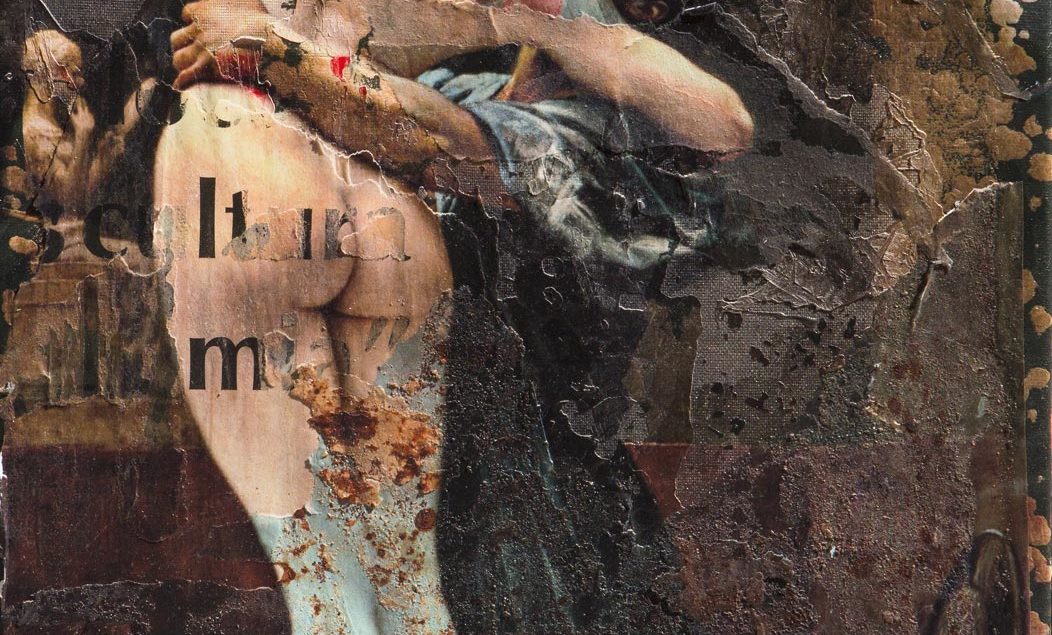Saligia – Zacco Palace Ragusa – from 7 Septembre to 7 October 2017
Reason and sentiment move the minds of all men. It is fascinating to think of the capacity to confront life in all its diversity. Cultures and civilisations of the past and the present have
committed atrocities that we have often been ashamed of. History does not teach, history reports facts how they occurred, often in a padded or selective way, depending on the kind of person, who talks about an event or a fact that happened. If men let themselves be inspired by the past in order to better themselves, paradise would have taken place already. The genocides continue, the tragedies at sea told by the fathers of ancient Greece reverberate like echo in our seas. What can the artist tell us these days? What makes Andrea Chisesi render homages to the grand
masters of the past? These are the questions I asked myself in front of the works of Andrea Chisesi. When we have something in front of us that we know, we feel secure because in that moment the memory triggered by our knowledge makes us feel protected. When we do not know something, doubt and fear of what we do not
understand start to pervade us. The exhibition ‘saligia’ can forebode in many ways the already well worn Catholic vision of the 7 capital vices, it testifies to a clear vision of the sin misleadingly confused with the vice. The vice of reading a book in the evenings does not imply a sin, eating dessert after lunch does not imply a sin of gluttony. The subtle line between vice and sin is the line between desire and mania. For this reason, the vice presented by Andrea Chisesi does not reprimand us, it does not unsettle us, the works are a clear declaration of the human soul, in its tender di Marcella Damigella by Marcella Damigella 14 weakness, every excess leads to physical or mental deterioration, but it is not an end in itself. The vice is the
manifestation of pleasure. When we desire something, we do not manage toadmonish the thought, man is weak because his body is made of flesh, the beauty of emotions blinds the will that
has a code dictated by conformity. Nobody without the codification of the rules can understand what is right or wrong. When we judge, we do it based on the teachings but which ones are the ones that have lead to a betterment of the soul? Andrea Chisesi reveals to us how he sees and understands the vice, the beautiful side of the coin. When the vice becomes obsession, it finds its roots. In his works, the artist undresses his characters. Amy is alone, she dies of gluttony, she dies of an entire series of connotations that the success has brought her, she is naked, in front of her guitar, she closes her eyes and she shows us the image of tenderness, the tenderness of the unique relationship saturated with love between her and
her music. How many of us have pointed a finger at Cardinal Bertone! A story as old as the world. And then Trump, proud in his convictions but how many of us know his ideals? So, I close here with a reflection: looking for an explanation for the multitude of weaknesses does not lead to a conclusion but rather to chaos where nothing makes sense or has a reason. Wisdom will save the world only, if it is at the same level as the humbleness of the soul. Thank you, Andrea Chisesi, for the lesson you present to us, whatever it may be.
by Marcella Damigella
